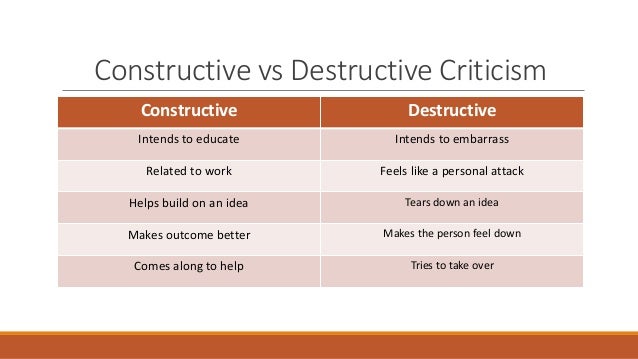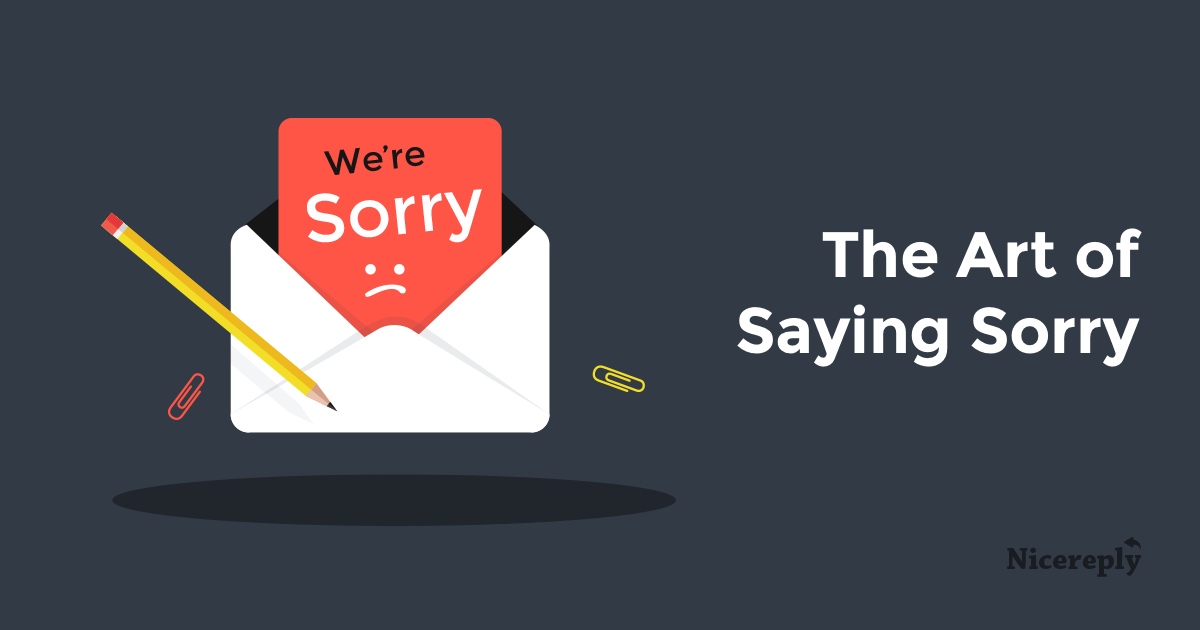
Most of us loathe negative feedback. Regardless of whether it is coming from unhappy customers, co-workers, or friends, hearing that you have failed can be a serious blow to your ego both personally and professionally.
But the harsh reality is that customers do not always see your company or products they way you see them. And, when constructive, negative feedback can be a valuable contribution to your brand and a strong motivation.
So, what is the right way to respond to negative feedback? How do you turn criticism into the ultimate source of success without getting defensive? How do you stay motivated when receiving critical feedback? This article covers the answers to these and other questions related to managing negative feedback. After reading, you will learn the top strategies that will help you respond to negative feedback in a healthy and productive way.
- Do not follow your first instinct

Source: https://www.verywellmind.com/what-is-the-fight-or-flight-response-2795194
Any stressful situation can trigger a cascade of negative hormones that set up what is called a fight-or-flight response. This response to stress has evolved as a survival mechanism that enables humans (and other mammals) to react immediately to life-threatening situations.
“When you receive negative feedback or are being criticized, your brain thinks that you are in danger and gets into the fight or flight mode. This means that, besides experiencing the physical indicators, you either get defensive or deny what you have just heard. ” says a specialist from Essay Tigers.
The truth is that it is natural to get upset or defensive, but it does not mean that your first instinct is always right. In fact, your first instinct can hamper your capacity to act smartly. That is why you have to take your time to cope with the fight or flight in you and try to reflect on what you have been told.
- Take your time to fully understand the issue
You do not act on negative feedback until you truly understand it. This simple rule is often overlooked by those who deal with criticism.
Taking your time to understand the feedback and get more data on the issue will help you get back with a well-thought-out response. So, make sure to assess the feedback source and its objectivity before you rush to responding.
There is a difference between negative feedback and destructive criticism. Negative feedback is healthy, backed up by objective reasoning, and, in many situations, necessary for growth. In the meantime, destructive criticism typically lacks logic and is aimed to discredit you.

Source: https://image.slidesharecdn.com/presentation1-handlingcriticism-171028052021/95/handling-criticism-3-638.jpg?cb=1509168133
So, if you see that a person who shares the feedback offers a perspective you are missing, it is a clear sign of constructive feedback. On the contrary, if the critic is rude and does not support their feedback with facts, you can be sure you have encountered destructive feedback.
- Thank customers for their feedback

Source: https://unsplash.com/photos/fvpgfw3IF1w
After you have taken your time to evaluate criticism and fully understand the issue, now you can actually start responding to the feedback.
The first thing you should do is thanking your customers for their contribution, even if the feedback lacks objectivity. After all, customers dedicated their time to reach out to you and offer their opinion, instead of sharing their thoughts online and leaving negative reviews. This alone deserves your thanks.
If you are using email to communicate with customers, make sure to thank your customers twice in the beginning and at the end of the email copy. Make your customers feel that their opinion matters to you, and you appreciate their contribution.
- Sympathize with a customer and express apologies

Source: https://www.nicereply.com/blog/wp-content/uploads/2017/03/fb-2.png
Admitting that you were wrong is the hardest part of responding to negative feedback. Still, when you receive criticism, it is important to sympathize with the customer and express your most sincere apologies (regardless of whether you think the feedback is fair or not).
Articulate that you are sorry for the customer’s negative experience, and mean it. Show some empathy and never respond with defensive explanations. This way, you will show that you are staying professional, customer-oriented, and loyal to your company.
- Take responsibility
After you have thanked customers and apologized for any inconvenience, it is time to take responsibility for your mistake. This means no scapegoating and no general statements, like “we will look into it.” While you are looking into it, your customers can simply churn and move on to explore other brands.
When customers spend time sharing their negative experiences, the last thing they want to hear is some vague and unclear explanations. After all, only one in 26 customers reaches out to businesses to communicate their complaints instead of churning. Encourage customers to share their experiences, even if they are negative.

Source: https://cxm.co.uk/1-26-unhappy-customers-complain-rest-churn/
Explain what might have gone wrong and ask for clarifications, if needed. Ensure your customers that you personally will do your best to prevent this situation from happening in the future. And again, mean it.
- Ask for further comments or suggestions
Always leave some room for customers to express additional suggestions and comments. Offer a chance for them to explain the issue altogether because sometimes customers do not mention the full extent of the problem until you start asking clarifying questions.
Also, by asking customers to share additional thoughts, you open up an opportunity for further communication and let them know that their opinion matters.
- Offer compensation
Offering fair compensation to unhappy customers is a part of managing customer feedback. Keep in mind that customers do not have to share their thoughts with you directly. It is easier for them to post a negative review than share thoughts with you and help your company become better. So, it is always nice to show that you appreciate the time spent and welcome feedback, even if it is unfavorable.
Here are some ideas of what you can offer as compensation to unhappy customers:
- A promo code with a discount for the next purchase
- A free download
- A discount for future purchases
- A refund or return
- A relevant link to the convent that will help your customers solve the issue (like instruction or how-to guide)

Source: https://miro.medium.com/max/2756/1*TK2SkiCe-Y7tlviOtu7Pgg.png
Even something as small as a promo code can make a big difference. By offering fair compensation, you will smooth out the negative experience and show how much you care about customer experiences.
- Use the feedback to improve your business/product

Source: https://unsplash.com/photos/5QgIuuBxKwM
What happens to customer feedback after you have crafted a well-thought-out response? The most productive way to handle feedback is by admitting your mistakes and making necessary changes.
Here is an important thing about negative feedback. It helps you grow professionally. After all, if you do not know what your weaknesses are, how will you ever grow or change?
It is useful to create a centralized data system for all feedback that you receive. This way, you can keep track of all customer inquiries, and prioritize issues that come up the most. Additionally, a centralized system helps you to take immediate action and evaluate your overall performance.
How to stay motivated after you have received negative feedback?

Succeeding and performing well is naturally motivating. However, staying motivated after receiving criticism can be more challenging than handling the actual response.
So, how do you not lose motivation and confidence after hearing criticism? These tips will help you boost your own motivation and confidence after hearing the harsh truth about your company or products.
Try to stay objective
It is hard not to take criticism personally. Yet, it is considerably easier to stay motivated when you approach negative feedback objectively. Always remember that brutal honesty will help you grow as a professional.
Do not forget about your victories
Negative feedback is unpleasant because it points to your mistakes. And when the only thing you focus on is your mistakes, it is impossible to stay motivated. That is why reminding yourself of your victories is vital for boosting your motivation.
Be open to feedback, even if it means receiving criticism
As you have already learned, constructive and healthy feedback will help you grow. Instead of getting defensive, welcome feedback. After all, seeking improvement is an integral part of finding your motivation.
The bottom line
As sure as there will always be satisfied customers, there will always be naysayers in your professional life. Accepting this and learning how to respond to negative feedback about your company or product is an integral part of working with customers.
When someone gives you their negative feedback, the most important part is preserving the relationship. The only way to preserve a relationship with unhappy customers is by making sure customers feel heard and noticed. After all, feedback (especially negative) can give a unique customer perspective you may be missing. This way, you can use this feedback to improve your product offering or advance your customer service.
Staying motivated after taking criticism is as important as knowing how to respond to negative feedback. It is easy to lose motivation when someone points to your mistakes. Staying objective, reminding yourself of your professional victories, and being open to negative feedback are the three practices that will help you stay motivated and confident.
Now, as you have learned how to respond to your customers when they heap criticism on your company or products, it is time to start crafting your responses!


How To Deliver More Online Products To Clients - Brontobytes Blog
[…] a track record can be done by being transparent to your customers. For example, if there is a defective product in the market and a customer received one of them in […]